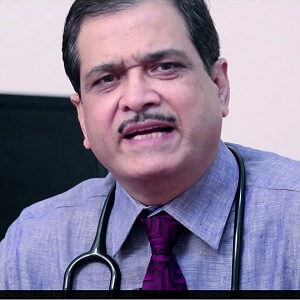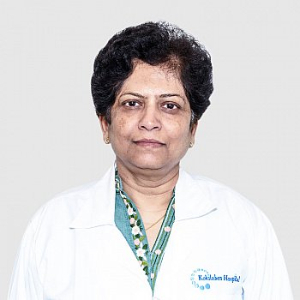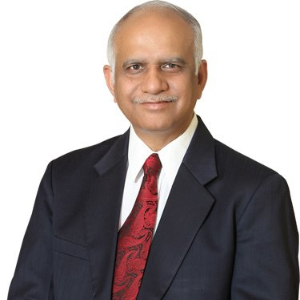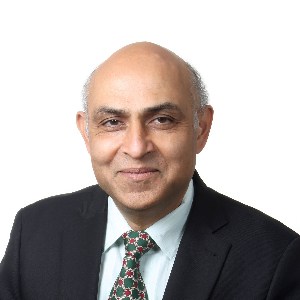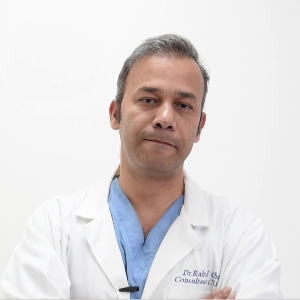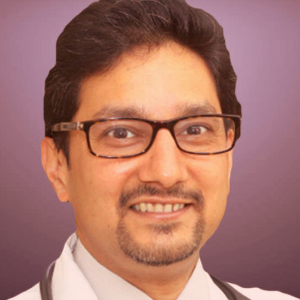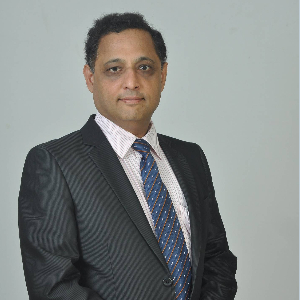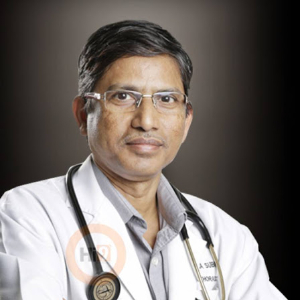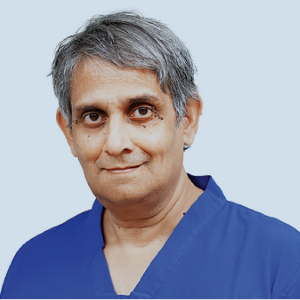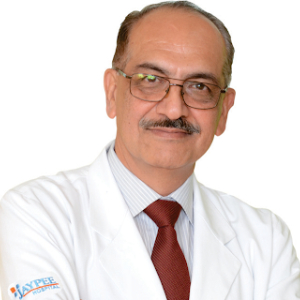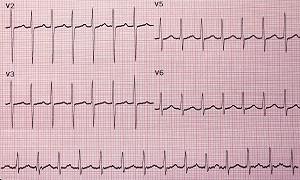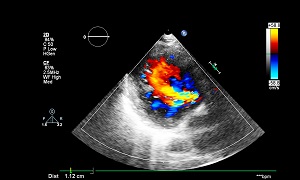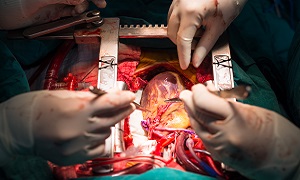Best Doctors in India for Pericardial Effusion Treatment
- Interventional Cardiologist, New Delhi, India
- Over 26 years experience
Profile Highlights:
- Dr. Rajeev Kumar Rajput is one of the best Cardiologists in India with nearly 23 years of experience. He is a clinical cardiologist engaged in diagnosing and treating cardiovascular diseases.
- Dr. Rajput is currently working as a senior consultant with Indraprastha Apollo Hospitals, New Delhi, and also offers patient care at the Heart & Gynae Clinic.
- Dr. Rajeev Kumar Rajput specializes in Angiography and Interventional Cardiology. The treatments provided involve Neonatal and Infant cardiac surgeries, Device Closure, and Valve replacement. He has expertise in Aortic Aneurysm Surgery, Vascular Surgery, Percutaneous Coronary Interventions, Endovascular Repair, Cardiac Catheterisation, Open Heart Surgery, and MV replacement.
- Dr. Rajput is credited with publishing several papers in noted medical journals.
- Pediatric Cardiologist, Mumbai, India
- Over 20 years’ experience
Profile Highlights:
- Dr. Snehal Kulkarni is a renowned pediatric cardiologist who specializes in the management and treatment of fetal cardiac diseases, non-invasive pediatric cardiology, and Adult Congenital heart diseases.
- She is an expert in Diagnostic and Interventional Cardiac Catheterization, Stent implantation, Cardiac Pathology, and Balloon dilatation.
- She has more than 2 decades of experience in pediatric cardiology and has acquired her training from prestigious institutions in USA.
- Cardiac Surgeon, New Delhi, India
- Over 36 years’ experience
Profile Highlights:
- Dr. S. K Sinha is one of the top-most reputable cardiac surgeons in India who has performed over 10000 heart surgeries, 2000 minimal access cardiac surgeries cases and has 36+ years of rich experience.
- As one of the best cardiac surgeons in India, Dr. Sinha has both performed and taken lead as the administrative and clinical mentor in several cases where his supervision and mentorship paired with his vast knowledge have helped future cardiac surgeons shape their careers.
- Senior Consultant - Cardiology, Dwarka, New Delhi, India
- Over 35 years’ experience
Profile Highlights:
- Dr. Monik Mehta is one of the best interventional cardiologists in India for the implantation of heart failure devices.
- His specialization also lies in performing complex Angioplasties and complex coronary interventions.
- Having received his training from Mahidol University, Bangkok, Dr. Monik Mehta has also worked with the United Nations as a cardiologist in Cambodia.
- Currently, he works as a Senior Consultant – Cardiology, in Manipal Hospitals, Dwarka, New Delhi.
- Senior Cardiothoracic and Heart Lung Transplant Surgeon, New Delhi, India
- Over 23 years’ experience
Profile Highlights:
- Dr. Rahul Chandola is a renowned cardiothoracic and vascular surgeon in India specializing in Adult CTVS along with heart and lung transplant surgeries.
- He is an expert heart and lung transplant surgeon and has performed over 100 heart transplant surgeries with successful results in both adult and pediatric patients.
- Currently, he works as a Senior Cardiothoracic and Heart Lung Transplant Surgeon in PSRI Hospital, New Delhi.
- Interventional Cardiologist, New Delhi, India
- Over 20 years’ experience
Profile Highlights:
- Dr. Vishal Rastogi is a leading Interventional Cardiologist in Delhi specializing in Heart Failure Management.
- Dr. Vishal Rastogi has over 20 years of experience in the field and holds the credit for the largest number of Impella Left Ventricular Assist Device (LVAD) implants in critically ill patients in India.
- He has performed a large number of Coronary and Peripheral Angiographies and diagnostic cardiac catheterizations in both adult and pediatric patients among several other interventional cardiac procedures.
- Cardio Thoracic & Vascular Surgeon, Mumbai, India
- Over 30 years’ experience
Profile Highlights:
- Dr. Anvay Mulay is a well-known cardiothoracic and vascular surgeon in Mumbai and one of the best heart transplant surgeons in India.
- He holds an extensive experience of close to 3 decades and has been associated with renowned cardiac hospitals in India, US, and UK.
- Dr. Mulay is one of the top surgeons for Adult cardiac procedures in India. He was the first to introduce LVAD in West and Central India when he performed the surgery on a 49-year-old patient.
- Cardiothoracic & Vascular Surgeon, Hyderabad, India
- Over 30 years’ experience
Profile Highlights:
- Dr. G Rama Subramanyam is a well-known cardiothoracic and vascular surgeon who specializes in open-heart surgery and has performed more than 5000 such procedures since 1997.
- He is also an expert in Minimally Invasive Coronary Artery Bypass Grafting and heart valve surgeries that includes over 200 Ischemic mitral valve repair surgeries and 100 myxomatous and Rheumatic mitral valve repair surgeries.
- Heart Lung Transplant Surgeon, Chennai, India
- Over 40 years’ experience
Profile Highlights:
- Dr. K R Balakrishnan is a highly coveted cardiac surgeon in India and is probably one of the best heart transplant surgeons in the country.
- He has performed the largest number of heart transplants in the country including 180+ heart transplants, 23 lung transplants, and 9 heart & lung transplant procedures. He performed the first permanent artificial heart transplant in India with HeartMate II LVAD.
- Dr. K R Balakrishnan has over 40 years of experience in the field and has the expertise to perform cardiac surgeries on patients of all ages. He has performed over 16000 cardiac surgeries for various types of heart diseases and disorders till date.
- Cardiac Surgeon, Noida, India
- Over 30 years’ experience
Profile Highlights:
- Dr. Manoj Luthra is a highly experienced and renowned Cardiac surgeon who has 30+ years of experience and performed the first heart transplantation surgery in the Indian Armed Forces.
- Till date, Dr. Manoj Luthra has performed more than 12,000 cardiac surgeries including 8000 heart bypass surgeries. He has also performed many heart transplants and aneurysm surgeries.
Best Hospitals in India for Pericardial Effusion Treatment
Lilavati Hospital & Research Centre, Mumbai
- City: Mumbai, India
Hospital Highlights:
- Lilavati Hospital & Research Centre is India’s premier multi-speciality tertiary care hospital and has been recognised as a global medical excellence centre.
- Lilavati Hospital & Research Centre has built an unrivalled level of trust with its patients over the years, thanks to a solid foundation that comprises cutting-edge facilities, the best medical competence, research, education, and charity endeavours.
- The hospital is quite proud of the fact that it now serves patients from all kinds of backgrounds, not just from the United States but from all around the world.
- The hospital has a total of 323 beds, one of the largest Intensive Care Units (ICUs), 12 Operation Theatres with modern amenities, over 300 consultants, and almost 1,800 personnel.
Venkateshwar Hospital, Dwarka, New Delhi
- City: New Delhi, India
Hospital Highlights:
- State-of-the-art technology and devoted healthcare professionals have been brought together under one roof at Venkateshwar Hospital to provide genuine medical care. The hospital’s professionals work together as a team to deliver the best possible treatment to their patients, using the most sophisticated equipment and information technology.
- Venkateshwar Hospital’s mission is to attain global excellence in healthcare by employing evidence-based, ethical clinical practices and cutting-edge technology by a team of highly skilled experts.
Marengo Asia Hospital, Faridabad
- City: Faridabad
Hospital Highlights:
In the sprawling city of Faridabad, where healthcare needs are diverse and ever-evolving, one institution has consistently stood out as a beacon of excellence in the field of medicine—Marengo Asia Hospital. Established with a vision to provide world-class healthcare services to the community it serves, Marengo Asia Hospital has emerged as a trusted name synonymous with quality, compassion, and innovation in healthcare.
MGM Healthcare, Chennai
- City: Chennai, India
Hospital Highlights:
- Located in Chennai, India, MGM Healthcare is a top multispecialty hospital that provides all medical services under one roof.
- Since its founding in 2019, MGM Healthcare has quickly become a leading national referral centre, creating several innovative flagship initiatives.
- MGM Healthcare combines next-generation medical and digital technologies to provide better patient results.
- With 12 centres of excellence, more than 400 inpatient beds, 100 intensive care unit beds, and 24/7 emergency care, MGM Healthcare leaves no chance in redefining the patient experience in Chennai.
- MGM Healthcare boasts 250+ expert doctors across 30+ departments, including Cardiology, Pulmonology, Neurology, Obstetrics & Gynaecology, and more.
- They house 12 specialized Centres of Excellence, including Neurosciences, Orthopaedics, and Multi-Organ Transplantation.
- Their team of doctors, nurses, and paramedics works together to give every patient individualized treatment.
Pericardial Effusion
A pericardial effusion is a condition in which there is an excess of fluid between your heart and the sac surrounding the heart, which is termed the pericardium. Although most of them are not harmful, they can sometimes make the heart work poorly.
The pericardium is a tough and layered sac. When the heart beats, it slides easily within it. The sac’s two layers have around 2-3 tablespoons of clear and yellow pericardial fluid. When you suffer from pericardial effusion, an excess of fluid sits in the sac. Small ones may contain 100 milliliters of fluid, while large ones may have more than 2 liters.
Symptoms
In some cases, you might have significant pericardial effusion without having any signs or symptoms. This may be the case if the fluid has increased slowly.
When symptoms of pericardial effusion occur, they might include one or more of the following:
- Shortness of breath or difficulty while breathing
- Chest pain, which occurs usually behind the breastbone or on the left side of the chest
- Discomfort in breathing while lying down
- Swelling in the abdomen or the legs
- Chest fullness
If you feel chest pain that lasts over a few minutes, then it might be best to call a doctor or emergency services.
Causes
Pericardial effusion may be caused due to inflammation of the pericardium in response to an ailment or injury. It might also occur when the flow of pericardial fluid is blocked or when blood collects within the pericardium, such as from chest trauma. Some other causes of this condition can include the following:
- Autoimmune disorders like lupus or rheumatoid arthritis
- Inflammation of the pericardium after a heart attack or a heart surgery
- Spread of cancer particularly lung cancer, breast cancer, leukemia, melanoma, non-Hodgkin’s lymphoma, or Hodgkin’s disease
- Cancer of the pericardium or heart
- Chemotherapy treatments for cancer
- Radiation therapy treatment for cancer if the heart was within the radiation field
- Waste products in the blood caused by kidney failure
- Underactive thyroid
- Trauma or puncture wound near the heart after an open-heart surgery
- Viral, bacterial, parasitic, or fungal infections
- Certain prescription drugs
Diagnosis
Physical Examination
Echocardiogram
Electrocardiogram
In this method, electrodes placed on your chest help to trace the heart’s electrical activity. Certain patterns on the electrocardiogram can signal a pericardial effusion or the inflammation that causes it. If it is suspected, an echocardiogram may be used to confirm it.
Once the effusion has been identified, your doctor will need to figure out its size and severity. Usually, it’s small and doesn’t cause any serious problems. However, if it is large, it may even compress your heart and hamper its blood-pumping ability. Known as cardiac tamponade, this condition can be life-threatening.

